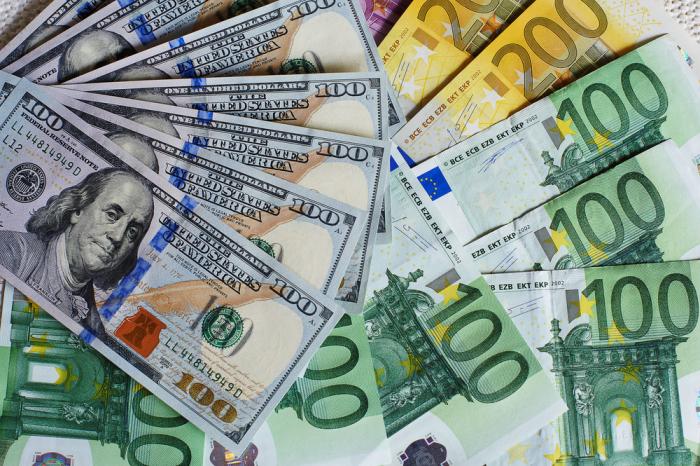Markets
European Stocks Climb With Asia Shares; Pound Weakens Before BOE

European equities gained while Asian stocks advanced, rebounding from their worst day since the aftermath of the Brexit vote, as crude oil held onto a recovery. The pound retreated with the Bank of England expected to cut interest rates.
The Stoxx Europe 600 Index gained after U.S. shares advanced Wednesday. Mining shares and energy producers drove the Asian index up from its lowest level since June 24, the day when referendum results showed Britain had decided to leave the European Union. U.S. crude extended gains into a second session after the steepest drop in American gasoline supplies since April soothed concern over a glut. The greenback rose before Friday’s jobs data and metals declined amid concern about increased supply from China.
The global equity rebound that took hold in July started to falter as August opened, with oil descending into a bear market and data failing to bolster confidence in the world economy. While central banks and governments have signaled unprecedented support, Japan’s latest efforts — which include monetary and fiscal stimulus — haven’t had their intended effect amid concern the plans won’t be enough to revive price growth. The Bank of England is expected to cut benchmark interest rates on Thursday, while non-farm payrolls data in the U.S. Friday could provide clues for Federal Reserve policy.
“The theme remains dominant in markets that monetary policy has effectively done as much as it can and that reflation, if required, should come via other means,” Sharon Zollner, a senior economist in Auckland at ANZ Bank of New Zealand Ltd., said in a note to clients. “The reality is that interest rates remain at record-low levels and, in an environment of moderate growth and low inflation, that is supportive of higher-yielding assets and Asia-Pacific markets should continue to benefit, as long as the growth picture holds together.”
Stocks
The European index rose 0.5 percent as of 8:07 a.m. in London. The MSCI Asia Pacific Index gained 0.6 percent, following last session’s 1.9 percent slide. The index, which jumped 5.8 percent in July, is down about 1 percent this week.
The Topix index climbed 0.9 percent as the yen reversed some of its recent advance. The stocks gauge had also dropped by the most in more than five weeks on Wednesday.
India’s benchmark S&P BSE Sensex advanced 0.2 percent, led by automakers and logistics companies that benefit from the passage of a national sales tax bill on Wednesday. Tata Motors Ltd., owner of Jaguar Land Rover, jumped 4 percent to be the strongest performer.
Futures on the S&P 500 were little changed, following a 0.3 percent increase in the underlying index on Wednesday. The U.S. benchmark had fallen 0.8 percent over the previous two sessions.
“There’s slow movement in a market that’s looking for a reason to go up or go down — it just hasn’t found any,” said Jeff Carbone, managing partner of Cornerstone Financial Partners, which oversees almost $1.1 billion in assets in Charlotte, North Carolina. “We haven’t seen that breakout that would suggest the market is based on fundamentals, it’s still very tied to central banks.”
Currencies
The yen weakened 0.3 percent to 101.54 per dollar, adding to its 0.4 percent slide on Wednesday.
Japan’s currency has gained about 0.5 percent this week, as traders weigh the BOJ’s decision last Friday to only bolster purchases of exchange-traded funds, as well as a fiscal package flagged Tuesday by Prime Minister Shinzo Abe.
The Aussie added 0.1 percent and Malaysia’s ringgit bounced with oil, climbing 0.3 percent from a four-day low. The rupee rose 0.1 percent.
The Bloomberg Dollar Spot Index, a gauge of the greenback against 10 major peers, was up 0.1 percent after rising 0.3 percent on Wednesday, when emerging-market currencies led declines.
Chicago Fed President Charles Evans told reporters Wednesday that a rate hike “could be appropriate this year.” Odds on the Fed boosting benchmark borrowing costs in 2016 have dropped to 39 percent, with last week’s weaker-than-expected U.S. growth data damping expectations of tightening.
Sterling declined 0.2 percent to $1.3295. The BOE is expected to cut its benchmark from a record low of 0.5 percent and may boost an asset purchase program that stands at 375 billion pounds ($500 billion).
Bonds
Australian sovereign bonds retreated, with 10-year yields rising two basis points, or 0.02 percentage point, to 1.95 percent, building on Wednesday’s 11 basis-point jump. Similar maturity Japanese debt yielded minus 0.08 percent, up 1 1/2 basis points.
Treasuries were little changed, with yields on notes due in a decade steady at 1.55 percent. Ten-year rates jumped at the start of this week, as the record-setting rally in global bonds appeared to falter. Yields on German 10-year bunds were also steady, at minus 0.04 percent.
Commodities
West Texas Intermediate crude was little changed at $40.84 per barrel, after Wednesday’s 3.3 percent rebound that came when U.S. government data showed gasoline stockpiles fell by 3.26 million barrels last week, the most since April. Brent crude fell 0.2 percent to $43 a barrel.
WTI is still down more than 1 percent this week, after the commodity sold off on Monday and Tuesday amid resurgent concern over a global glut. Citigroup Inc. to Bank of America Merrill Lynch predicted the slump would be short-lived, while Societe Generale SA said the price correction would be limited due to a better balance between supply and demand.
“We’re seeing rebalancing,” Scott Darling, regional head of oil and gas at JPMorgan Chase & Co., said in a Bloomberg TV interview. “We think in the near-term, oil will be under pressure because demand is moderating.”
Gold for immediate delivery dropped 0.5 percent to $1,351.59 an ounce, after declining 0.4 percent on Wednesday. Last session’s retreat halted the precious metal’s longest rally in a month.
Copper dropped 2 percent to $10,525 a metric ton on the London Metal Exchange. Nickel also fell 2 percent, while Aluminum was down 0.4 percent.